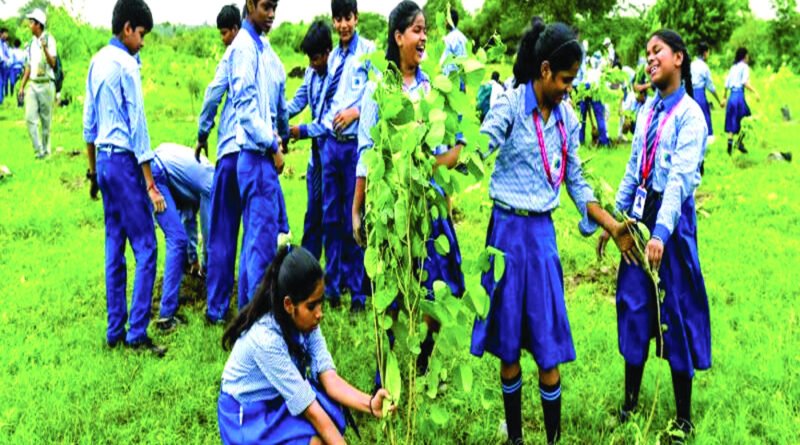Building defence of peace in mind
Several philosophical ideas have deep roots in Indian soil, and stand dynamically enriched by the great tradition of quest for knowledge
The creation of the UN on October 24, 1945, was an outcome of aspirations of anguished humanity that has suffered WWI and WWII, and gone through unprecedented sufferings, devastation and destruction. Humanity needed a healing touch and a forum for civilised discourse and, above all, articulation of creating a value-based society that would strive to give due dignity to every human being, that would emphasise the equality of all human beings irrespective of race, colour, caste, creed, affiliation, religion, or any other diversity. This could be possible only when an empathetic human community is created globally, one that acknowledges the core human values: Truth, peace, nonviolence, righteous conduct and love. The essence was well articulated in Unesco’s emblem: “Since wars begin in the minds of men, it is in the minds of man that defence of peace must be constructed.” Truth, or the search for truth, is just not possible unless the other four of the five values mentioned above are also accepted and put to practice in daily life.
After over seven decades of the UN’s establishment, the mandate to achieve an attitudinal transformation amongst humanity seems to have been forgotten. It is violence, terrorism, fundamentalism, distrust and a vulgar pursuit of destructive weaponry all around. The human mind has been studied seriously by modern sciences; it has its intuitional comprehensions contained in ancient treatises. Swami Vivekananda was perfectly logical and scientifically accurate when he mentioned: “The true basis of education is the study of the human mind — infant, adolescent and adult. Any system of education founded on theories of academic perfection, which ignores the instrument of study, is more likely to hamper and impair intellectual growth than to produce a perfect and perfectly equipped mind.” Obviously, the damage has been inflicted on generations that have been educated and evaluated on much sought after academic excellence, confined to a curriculum, textbooks and examinations that expect reproduction of the answer as “given in the textbook”. The pragmatic objectives of education were limited to rote learning and learning for examinations, and marks were the only measure of the level of the learner’s excellence. It has to be replaced by conceptual understanding and critical thinking in a learning environment characterised by nourishing of inherent curiosity and creativity.
The National Education Policy (NEP-2020) in the third decade of the 21st century derives its sustenance from the philosophical ideas that have deep roots in India, and stand dynamically enriched by the great tradition of knowledge quest that evolved in the Gurukul system and led to the creation of institutions like Taxila, Vikramshila and Nalanda. These could set the highest standards of multidisciplinary teaching and research which attracted seekers of knowledge from various countries. Effortlessly, though very clearly and from the beginning, the Indian tradition of education and learning entrenched the importance of man-nature mutuality in the mind of the learner. The rich heritage of ancient and eternal Indian knowledge has been the guiding light for this policy. The pursuit of knowledge (Jnan), wisdom (Pragya) and truth (Satya) was always considered in Indian philosophy as the highest human goal. The aim of education was not just the acquisition of knowledge as preparation for life in this world, or life beyond schooling, but for complete realisation and liberation of the self. The depiction of divinity in nature, a great strength of the Indian tradition and unique to it in several ways, is being viewed with considerable awe by those willing to find solutions to global concerns like pollution, climate change and the impending water crisis. The symphony of the process of education, creation and generation of knowledge and its use were so established that the essence of it reached everybody in society. At the highest level of intellectual effort, the knowledge on trees and plants was created, keeping in view its utility in public welfare. Even today, one can see how people are conscious of such classifications. And all this is found scientifically accurate!
The challenge emerges from the realisation that the traditional knowledge transfer was disturbed for various reasons, coupled with the shameless plundering of natural resources. The globalised world is now facing its consequences. India accepts the need to relate its education system to homegrown philosophy and practices that, in this specific context, includes “Aparigraha”, re-articulated by Mahatma Gandhi as an eternal truth that could save mankind: “Nature has sufficient resources to meet the need of everyone, but not the greed of anyone.”
Wars begin in the minds of human beings; the initiatives for “constructing the defence of peace” must begin in the early years and continue all along. The realisation of this aspect is one of the most outstanding inclusions in NEP-2020. For the first time in contemporary education, the importance of the first eight years in schools beginning from 3+ has been acknowledged, and the entire school system shall be reorganised accordingly. India shall prepare a generation of young persons whose mind “would not be a dustbin to keep anger, hatred and jealousy”. It would be filled with love, nonviolence, empathy, compassion and dharma. That could attract the whole world towards Indian institutions once again.
(The author works in education, social cohesion and religious amity. The views expressed are personal.)
Source: The Pioneer




